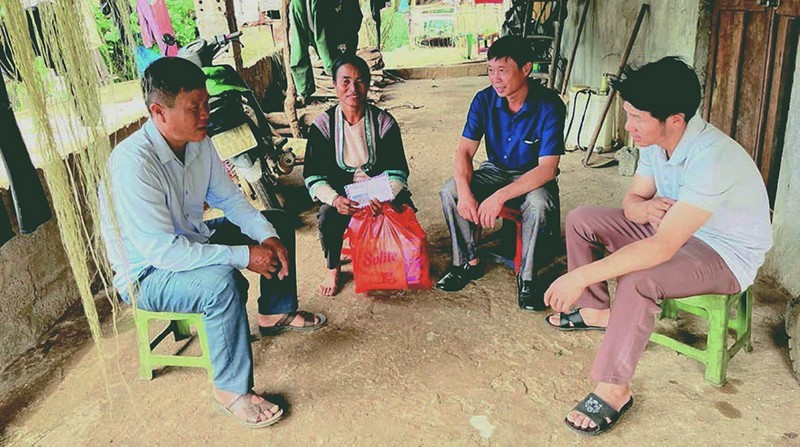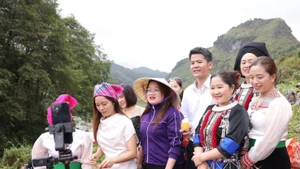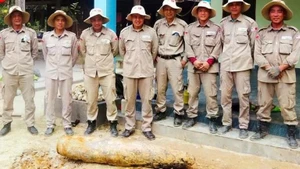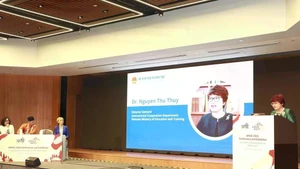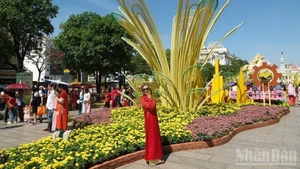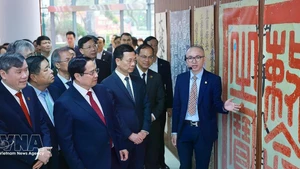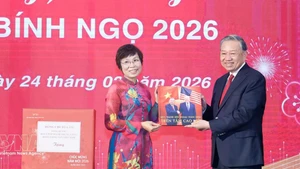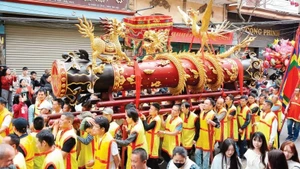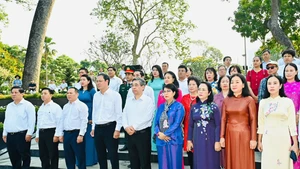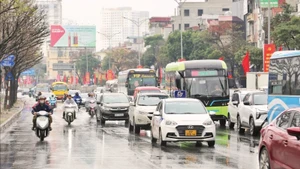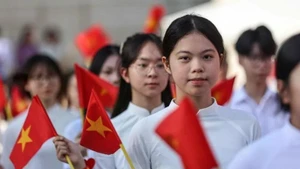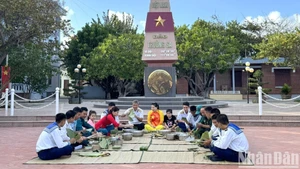As a mountainous, border province in Viet Nam’s northwest, Lai Chau is home to over 80% ethnic minority populations. The provincial leadership recognises that cultivating an ethnic minority cadre force with the necessary qualifications and commitment is key to ensuring the Party’s comprehensive grassroots leadership, strengthening national unity, harnessing internal strengths, and promoting sustainable development.
Throughout every stage of national development, the Party has consistently defined cadre development as central to Party building and the consolidation of the political system.
Understanding the significance of this task, particularly for ethnic minority officials, Lai Chau’s Provincial Party Committee issued Resolution No. 06-NQ/TU dated March 15, 2021. The resolution aims to improve the quality of ethnic minority leaders and commune-level key cadres during the 2021–2025 period, with a vision to 2030.
Balanced structure, assured quality
Ethnic minority cadres often grow up in their own villages, maintaining close ties with the local people. Their deep understanding of local languages, cultures, aspirations, and lifestyles grants them strong influence within their communities—when they speak, the people listen, and when they act, the people follow. This enhances the timeliness, effectiveness, and relevance of disseminating and implementing Party directives.
Lai Chau’s party committees at all levels have emphasised that enhancing the leadership capacity and combat strength of Party organisations, socio-economic development, national defence and security, rural development, and sustainable poverty reduction all hinge on building a strong team of ethnic minority cadres.
In parallel with the implementation of Resolution 06-NQ/TU, the Provincial Standing Party Committee issued detailed regulations on cadre planning, including specific targets for the proportion of ethnic minority personnel in Party committees and leadership roles at all levels. The percentage of ethnic minority cadres in the provincial-level planning stands at 37%, while at the commune level, it is nearly 80%.
According to Mac Quang Manh, Deputy Head of the Organisation Commission of Lai Chau's Party Committee, the province has directed all Party committees, organisations, agencies, and units to implement special mechanisms for recruiting ethnic minority cadres. Priority has been given to placing them in suitable roles and including them in planning pools.
The province has also introduced mechanisms encouraging young and capable cadres to work in especially disadvantaged areas to build experience and resilience. To overcome limitations in qualifications among ethnic minority cadres, Lai Chau annually organises training courses for cadres focused on political theory, leadership skills, Vietnamese language proficiency, and basic IT literacy.
Thanks to the determination of Party committees at all levels, the number, quality, and structural balance of ethnic minority cadres has improved significantly.
Currently, the province has nearly 7,000 ethnic minority cadres. Among them, 58.9% hold university degrees, 14.2% have college diplomas, and 16.9% hold intermediate qualifications. Politically, 283 have completed advanced training, 951 intermediate, and 595 basic levels.
Notably, 899 ethnic minority cadres have been considered for promotion or appointed to leadership positions. At the commune level, ethnic minorities hold the majority of key posts such as Party Secretary and Chairman of the People’s Committee, fulfilling set targets.
Under the guidance of the Lai Chau Party Committee, grassroots-level Party organisations across communes and wards have gradually built a contingent of ethnic minority cadres with sufficient virtue, capacity, dedication, and leadership skills—capable of staying close to and working effectively with local communities.
Nam Tam Commune, formed by merging three former communes—Nam Tam, Lung Thang, and Nam Cha (from the old Sin Ho District)—is home to some of Viet Nam’s least populous ethnic groups such as the La Hu, Cong, Mang, and Lu.
Pham Van Phoi, Standing Deputy Secretary of Nam Tam's Party Committee, stated: “After the merger, Nam Tam Commune has 50 officials and civil servants, of whom 33 are ethnic minorities, accounting for 66%. Among them, 31 hold university degrees and 2 hold intermediate qualifications. From 2022 to 2024, 100% were rated as ‘good’ or ‘excellent’.”
In terms of political theory training, four have completed advanced-level courses, while 19 hold intermediate qualifications. “These are favourable conditions for our Party Committee to perform effectively after the merger and enter a new stage of development, both provincially and nationally,” Phoi added.
A pillar of trust for ethnic communities
Ta Tong is the largest commune in Lai Chau, covering over 500 km². It is a remote border commune, not subject to recent mergers, and located around 170 km from the provincial centre. Over 90% of its population is H’Mong.
Recognising the importance of ethnic minority cadres, especially in sustainable poverty reduction, the commune Party Committee has prioritised training and development. This includes identifying potential sources, encouraging further education, and facilitating access to intermediate and basic political theory courses.
To date, Ta Tong has 37 ethnic minority cadres. Among them, 33 (89.2%) hold university degrees, and 4 (10.8%) have intermediate qualifications. All have completed upper secondary education.
Regarding political training, 27 have been certified—3 at the advanced level (8.1%), 15 intermediate (40.5%), and 9 basic (24.3%).
This qualified cadre team has played a key role in transforming agricultural production—shifting crop and livestock structures, applying scientific and technical advances, rehabilitating mixed gardens, and improving land-use efficiency. These positive outcomes have earned the trust of the local people, encouraged widespread participation, and improved both material and spiritual living standards.
Currently, the commune’s per capita income has reached 35 million VND (1,335 USD) per year. Rural landscapes have changed, and a new rhythm of life is emerging in many villages. Ethnic minority cadres are not only political nuclei but also reliable pillars—sparking development, preserving cultural identity, and revitalising the countryside.
Sung A So, a H’Mong and Party cell secretary of Hua Than Hamlet (Than Uyen Commune), graduated from forestry college in 2008, joined the Party in 2011, and holds a basic-level certificate in political theory.
Eager to learn and widely travelled, Sung A So understands the Party’s concern for the well-being of the people. As a result, he has actively campaigned to eliminate outdated customs among the H’Mong.
He shared: “Having travelled and met many people, I realised that while H’Mong culture has many beautiful traditions, there are also outdated and cumbersome practices that no longer suit modern life. Eliminating these customs—especially early marriage—is extremely difficult.”
“In practice, I adopted the approach of ‘going door to door’ to explain and persuade, starting with village elders and leaders. Slowly but surely, through persistent efforts, we’ve seen results. Economic life is stable, and positive changes are emerging in the cultural and spiritual spheres.”
The dedication of Party committees in Lai Chau to building a capable ethnic minority cadre force is not only a practical development requirement—it also concretises the Party and State’s overarching ethnic policies. At the same time, it empowers ethnic communities to take ownership of the province’s development path, which is guided by the principle of “rapid–green–sustainable” growth.
In this effort, each ethnic minority cadre serves as both a role model and a beacon of trust in the villages—a solid bridge connecting the Party with the people.
